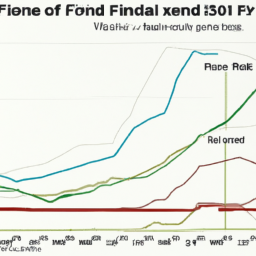Index funds are a type of mutual fund or exchange-traded fund (ETF) that are designed to match the performance of a specific index, such as the S&P 500, Dow Jones Industrial Average or Nasdaq. An index fund is a portfolio of securities that tracks the performance of an index by buying all, or a representative sample, of the securities in the index. They are often referred to as passive investments as they seek to replicate the performance of the index, rather than attempting to beat it.
Investors are increasingly turning to index funds as they are seen as a cost-effective way to invest and have the potential to outperform actively managed funds. Buffett's now-famous bet that over 10 years, an S&P 500 index fund would outperform five actively managed hedge funds, highlighted the potential of index funds.
Index funds are more cost-effective than actively managed funds. This is because the fund manager does not have to do extensive research and analysis of the companies in the index, as the performance of the index is already known. Also, the fund manager does not need to make decisions about which securities to buy or sell, as these decisions are already taken care of by the index.
